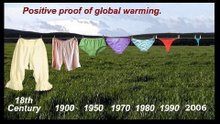Large-scale energy projects are wonderful in that they can claim to make substantial reductions in carbon emissions, and provide benefits to the owner or community served, but I find small-scale systems much more interesting. While huge arrays are impressive, they simply serve to replace grid-supplied power with power from the sun. I’m not terribly excited by this. On the other hand, small-scale solar photovoltaic (PV) projects provide practical solutions to a variety of problems. Ranchers, for example, use simple PV systems to pump water for cattle in areas where no power lines exist. While windmills were once used for this purpose, their tendency to breakdown makes PV systems a much more practical solution. The PV solution is elegantly simple in that no batteries, charge controllers, or inverters are required. The output of the PV array is connected directly to the pump. Pumps used in this application have been designed to withstand low-power conditions, resulting from of cloud cover for example, without damage.
Where power lines don’t exist, or where it is simply too expensive to run them, small PV systems are often the best power option. Remote cabins and vacation homes are an example. PV systems offer an alternative to noisy, smelly fuel-powered generators. While the initial cost of a PV system is greater than that of a generator, the cost of fuel to run the generator quickly surpasses the cost of a PV system. And, not having to haul fuel is a bonus.
The limitations of my own small off-grid photovoltaic system keep my interest high. Instead of having a system that automatically kicks-in in the event of a grid power failure, I scramble to run extension cords and lights. I monitor the drain on my system, and ration the power used for the duration of the outage so that I don’t run short. When grid-power fails, I’m the energy czar in my home. While I wish that my system were larger, there are advantages to living with these limitations. Members of my household are aware of the power that certain devices require. While we’ve taken electricity usage for granted in the past, now we tend to conserve. We understand the importance of buying energy-efficient appliances, and turning off lights and other devices when they’re not being used. We’ve learned about phantom loads, and we avoid them. Our goal is to keep enlarging our PV system and to keep reducing our electricity usage. Eventually, we'll be able to produce all that we need. This goal will take years to achieve, but then the journey is the interesting part.
Perhaps the most worthwhile PV systems are those installed in rural third-world country residences. Without PV, many rely on kerosene for lighting. This practice results in fires and injuries, as well as health problems resulting from breathing the fumes. While the initial cost of a system is relatively high considering the income of the recipient, the overall cost is lower than the cost of using kerosene. PV power is also used to run radio’s, TV’s, and computers in rural schools, as well as to provide power for refrigeration needed for medicine. Non-profit groups such as the Solar Electric Light Fund (SELF) install systems and provide financing. In addition, SELF establishes local dealerships and trains local residents as installers and technicians.
While the first practical application of solar panel technology was in the space program, it seems ironic that the most worthwhile use for this technology happens to be in the most underdeveloped areas on this planet. I wonder what the recipients of this technology think when they look at the charge controller. I wonder if they know that it not only protects the battery, but optimizes charging as well. Do they appreciate the effort that some engineer put into the design of this product?
It seems to me that providing PV technology to those who need it is a far better way to win hearts and minds than by occupying a country and killing its residents. As a solar PV system researcher I wish I were eligible for grants and subsidies. I can only imagine what I could do with one point four billion dollars, the cost of one week of war in Iraq. If I were president things would be different. While I’m waiting to be elected, I’ll welcome contributions large and small to finance my work. Anyone? Hello?
Solar John
Subscribe to:
Post Comments (Atom)








1 comment:
A great site with some innovative ideas. Need more like-minded people like yourself ...keep up the good work !
J. Foley
Post a Comment